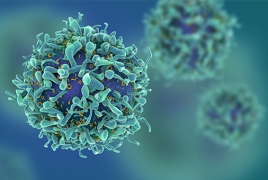
New research finds that the diabetes drug metformin changes stem cancer cells in a way that makes them easier to target with a new form of treatment. The findings could help treat triple-negative breast cancer, which is particularly aggressive, Medical News Today reports.
Triple-negative breast cancer is an aggressive form of breast cancer that often results in a poor outlook for people who receive a diagnosis for it.
Most forms of breast cancer depend on hormones, such as estrogen and progesterone, for growth and spread. Therefore, targeting these hormone receptors offers an often successful avenue for treatment.
However, unlike these more widespread forms of breast cancer, triple-negative cancers lack all three hormone receptors: the estrogen receptor, progesterone receptor, and human epidermal growth factor receptor 2.
As a result, doctors find this form of cancer particularly difficult to target and treat. Triple-negative breast cancers make up approximately 12% of all cancers, and in the United States, this form of cancer is twice as likely to occur in black women than white women.
Recent studies have pointed to cancer stem cells as a potential target in the treatment of triple-negative breast cancer. Cancer stem cells seem to be key for the formation and advancement of triple-negative tumors.
Now, researchers may have found a way to weaken these cells and make tumors more vulnerable to treatment.
Specifically, a team led by Jeremy Blaydes, a reader in Cancer Cell Biology at the University of Southampton in the United Kingdom, found that the diabetes drug metformin changes the metabolism of cancer stem cells, making them easier to target by a new form of treatment.
Blaydes and colleagues detail their findings in the journal Carcinogenesis.

